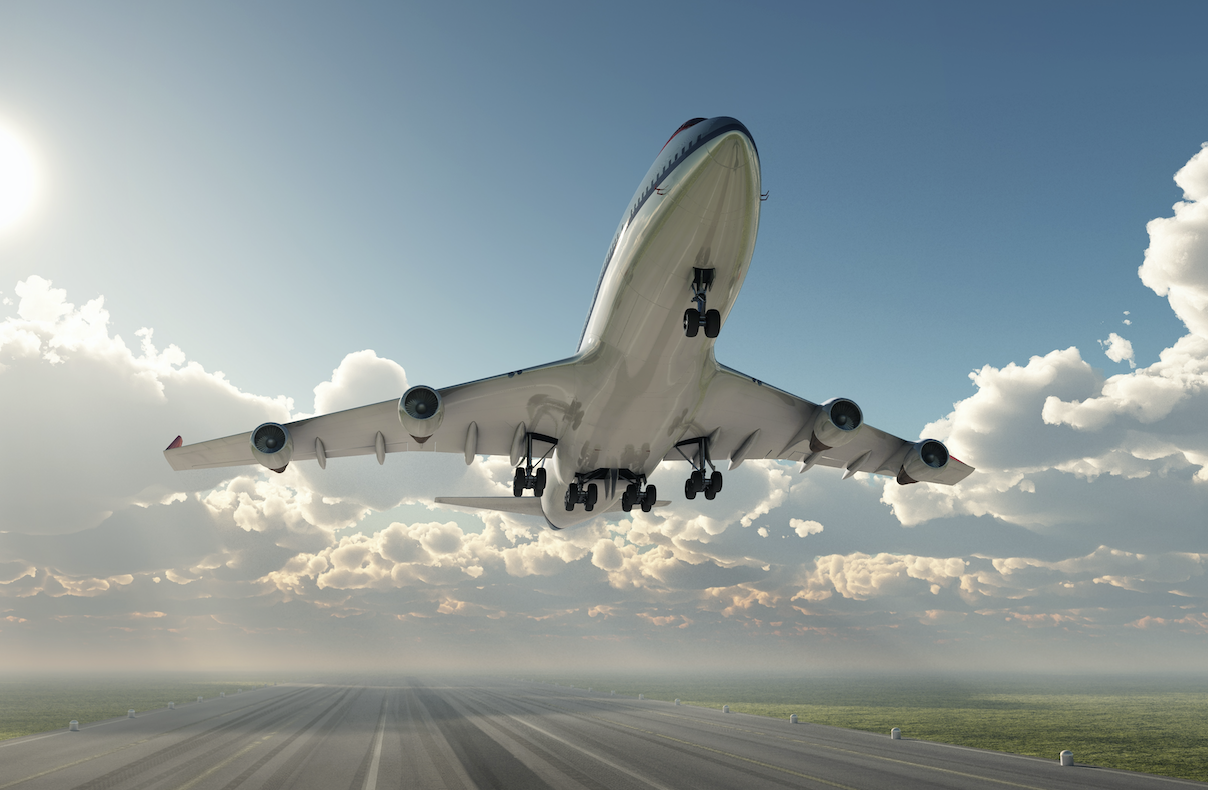Number of Daily Flights Rises Worldwide
Plane traffic is on the rise in the U.S. and other parts of the world, according to data from Flightradar24, a Swedish internet-based service that shows real-time commercial aircraft flight tracking information on a map.
Globally, the number of commercial flights in the air plummeted from a daily average of 101,297 on March 12 to 23,926 on April 12. On Tuesday, 35,451 flights took to the air worldwide. Compared to 2019, commercial flights are still down 70% on a global basis, however the numbers will continue to rise as travel restrictions are eased around the world.
In the U.S., which went from having 26,000 commercial flights a day in mid-March to one-fifth that number in late April, air travel is also travel rebounding. Nearly 7,000 flights took off on May 15, reflecting a 35% increase from the April lows. The Transportation Security Administration reported more than 300,000 travelers passed through its airport checkpoints last Thursday, the most traffic in two months.
New Bookings Outpace Cancellations
All the major U.S. carriers, including Delta Air Lines (DAL), United Airlines (UAL), American Airlines (AAL), Southwest Airlines (LUV) and JetBlue Airlines (JBLU) report that new bookings have started to outpace cancellations. These airlines are also filling a greater portion of seats on their planes. The pandemic emptied out flights in April, with passengers filling up an average of 10 seats per flight compared with 98 in February. In the past few weeks, that number has grown to 39 passengers per flight.
This is consistent with reports that third-party travel booking sites are seeing more people searching for and booking flights. A recent survey from travel app Hopper found that more than 40% of American respondents intend to travel by air this summer, with 25% planning to book their travel in the next month.
Country Borders are Reopening
One reason the world’s largest airlines have had to ground a majority of their flights is due to most country’s borders shutting down to contain the novel coronavirus. But borders are reopening around the world.
Several Asian and European governments intend to loosen restrictions on overseas travelers over the next two months. For example, Vietnam will resume issuing e-visas to visitors from 80 countries effective July 1, Greece will allow direct international flights to Athens starting June 15, with other tourist destinations to follow July 1; Spain plans to go even further by lifting its two-week quarantine on international arrivals. Some countries are opting for so-called travel bubbles, whereby only inter-regional travel is allowed for the time being. Such is the case between South Korea and China, and among several EU member states.
Airlines are preparing for the easing of travel restrictions. Delta, American, and United have all decided that they will resume several European routes between June and October, predominantly to major hubs such as London, Paris, Frankfurt, and Amsterdam—another indication that international travel may slowly start to pick up in the coming months. JetBlue also announced that it will restart service to 13 international destinations in June. European carriers including British Airways-owner International Consolidated Airlines, Lufthansa, Ryanair, and Air France-KLM plan to ramp up their flight schedules by July, Forbes reported earlier this month.
Under-Priced Sector
When Warren Buffet dumped his airline stocks in April, his main argument was that the investment case for the airlines had changed significantly. He questioned, for example, whether passenger numbers would fully rebound from the coronavirus pandemic in the next few years. Even if carriers returned to 80% of their capacity, he warned, they could be left with “too many planes.”
Indeed, U.S. carriers have parked more than half of their fleets and are burning through cash at a rate of tens of millions of dollars a day. Executives have acknowledged that the landscape remains uncertain for an industry that has already received $25 billion in government payroll aid during the worst crisis in airline history. Added to these concerns are the possibility that a “second wave” of infections could spook consumers from flying or prompt governments to re-impose travel restrictions.
Nonetheless, now could be a good for time for opportunistic investors to bite. Airline stocks are trading at distressed levels that imply the industry won’t recuperate for years. Industry executives disagree. The U.S. airline industry will be just 10% to 20% smaller in the summer of 2021, predicts American Airline’s chief executive. Insiders at different airlines are so bullish at these price levels that they have been buying up shares of their companies.
In the meantime, Delta Airlines expects to reduce daily cash burn to $40 million as June winds down and is on track to reach zero by year-end, CFO Paul Jacobson said.Southwest Airlines has said it would take about 20 months before its $13 billion in cash and short-term investments would be depleted. And, yesterday, American Airline’s CEO Doug Parkerdismissed rumors that the carrier is considering a bankruptcy filing. Nearly 40,000 of its more than 100,000 employees have opted for an early retirement, reduced work schedule or temporary leaves, he said, which eases pressure on the company.
How To Gain Exposure
Investors can gain exposure to the airline recovery via the U.S. Global Jets ETF (JETS). The fund invests in both U.S. and non-U.S. companies involved with the airline industry, including passenger airlines, aircraft manufacturers, airports and terminal services companies.
JETS has risen 30% since hitting a bottom on May 15, but the fund is still down 50% year-to-date, which leaves room for further upside. In comparison, the iShares Transportation Average ETF (IYT) and the SPY have returned -18% and -7%, respectively YTD. With passenger numbers rebounding, travel restrictions being eased, flights resuming, and carriers adapting to the pandemic, JETS could close that gap further in the months ahead.
Nelly Nyambi
Managing Director, Research
McAlinden Research Partners





Leave a Reply